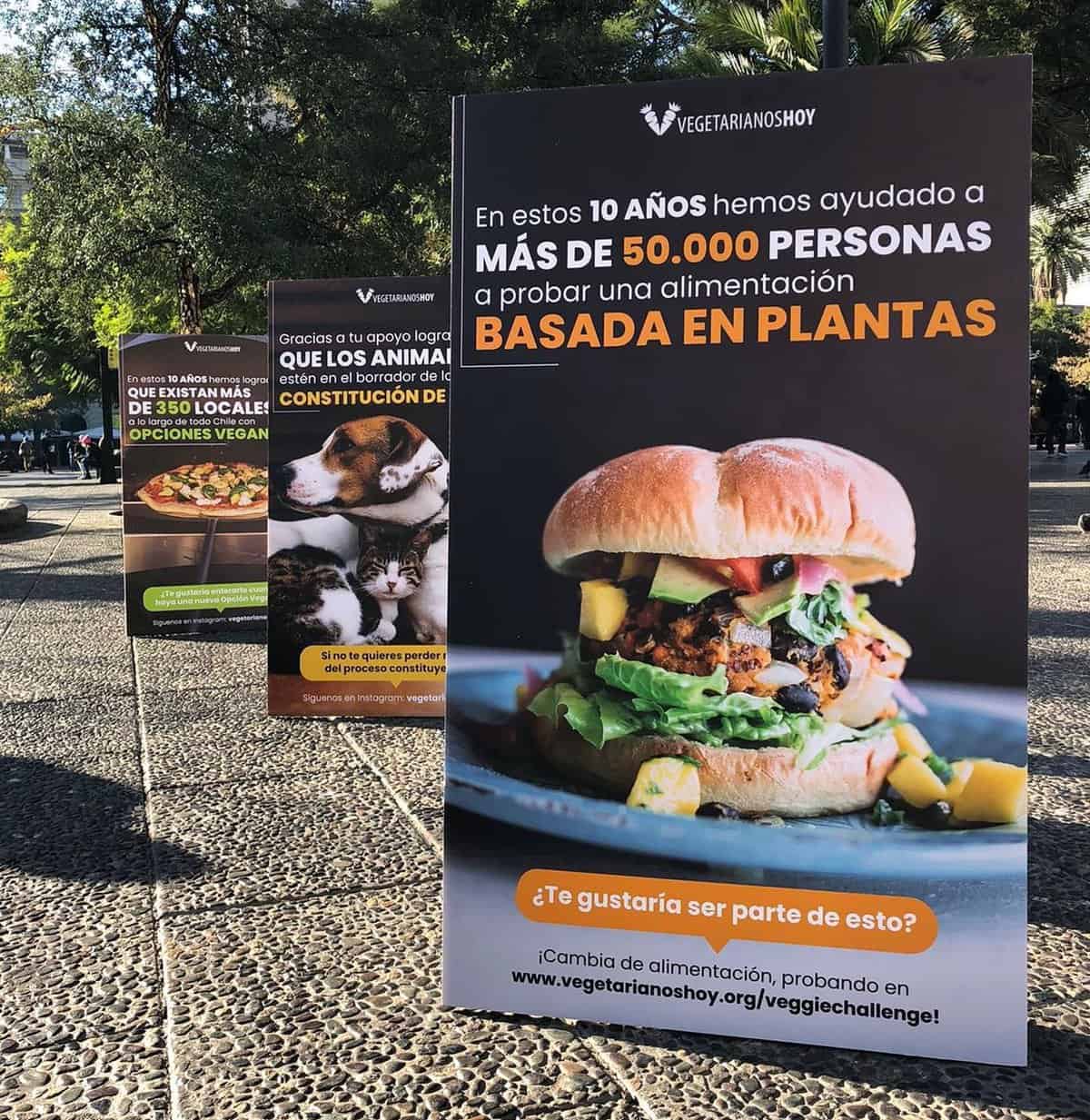On April 17th, Chile‘s government passed a bill to redefine the concept of meat and prohibit meaty terms for non-animal origin products, including plant-based foods.
The bill proposes that words such as hamburger, chorizo, sausage, or jerky, for example, cannot be used to describe, promote, or market foods that contain a higher proportion of vegetable matter than meat.
“It ultimately aims to reduce the access and consumption of plant-based products to protect the meat industry”
Vegetarianos Hoy, an international organization working in Latin America to promote plant-based diets (check its guide on vegan products in LATAM ), called on the country’s organizations and brands operating in the plant-based industry to make a statement.
Last Friday, seven organizations, including ReVeL Foods, Vegusta, VegMonkey, Rikü, Pow! Foods, Seitan del Bueno, Carno, and Vegetarianos Hoy, signed an official document titled NO to the law against products of plant origin.

“Protects” the meat industry
The statement, which seeks to collect signatures from the public to prevent the bill from being approved, offers key arguments to raise awareness among the population. It argues:
- The bill needs to be more transparent since it ultimately aims to reduce the access and consumption of plant-based products to protect the meat industry and the interests of those behind it.
- The proposal is contradictory to the current environmental and climate crisis. “It is tremendously counterproductive to make it more difficult for consumers to access plant-based protein products that are an alternative, precisely because the meat industry is one of the biggest polluters and contributors to climate change, according to the Food and Agriculture Organization of the United Nations (FAO),” reads the statement.
“It is tremendously counterproductive to make it more difficult for consumers to access plant-based protein”
- “To put it in numbers, animal meat is responsible for 57% of global emissions from food production, with livestock farming being one of the activities with the highest methane emissions on a planetary level is formulated in the text,” it continues.

Denying access to healthier foods
- The bill’s project lacks scientific support and seeks to impede the growth of an emerging industry. If approved, it will create a barrier for current and new consumers who wish to switch to a more health-conscious diet, as it will be difficult to find viable alternatives in the market.
- The law would deny access to healthier alternatives while promoting the consumption of carcinogenic foods. Among others, hamburgers, sausages, and ham correspond to processed meat, which is classified as highly carcinogenic by the World Health Organization (WHO), in the same group as tobacco and plutonium, argues the statement.
Additionally, the organizations highlighted products that are not subject to the law but would meet the same criteria:
“The question arises as to whether those who advocate for this supposed transparency will also prohibit the promotion of Easter eggs because they are made of chocolate and are not from hens. Is this the next step for our legislators?” concludes the statement.
Vegetarianos Hoy launched a petition of signatures on Change.org to pressure and prevent the bill’s approval.





